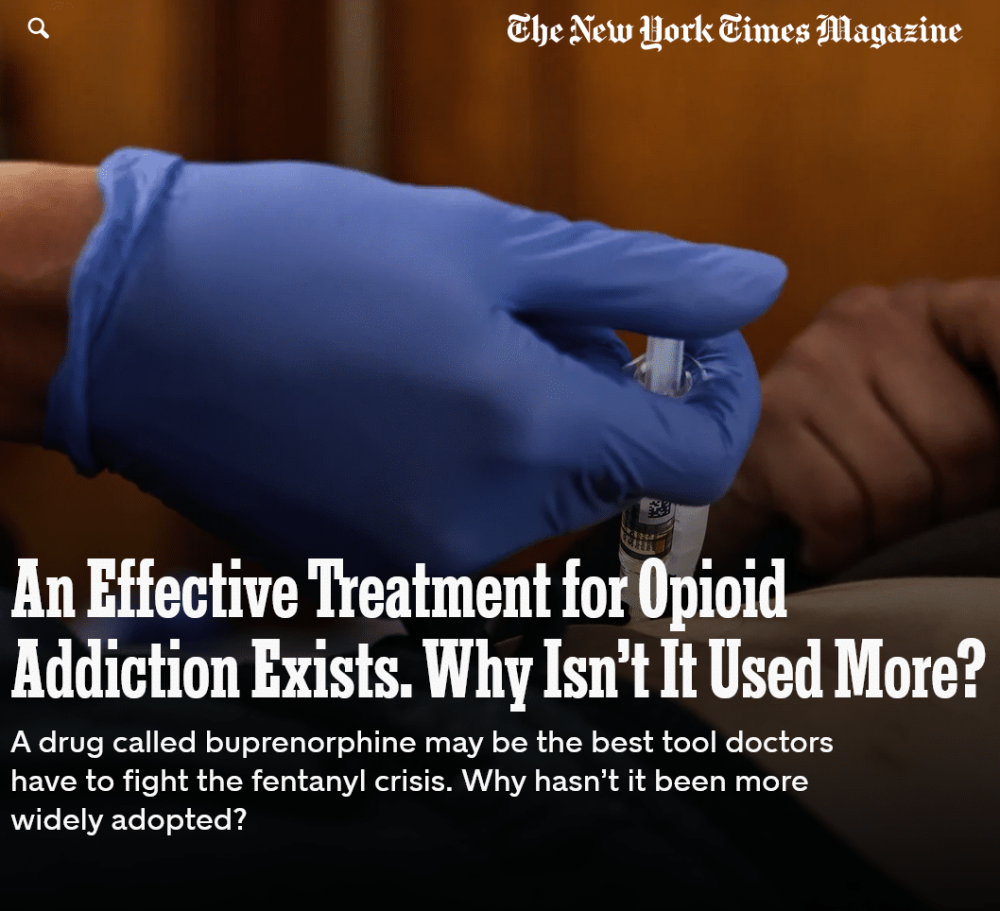Fentanyl is a synthetically manufactured opioid pain medication that is extremely dangerous if misused or taken accidentally. Doctors prescribe fentanyl patches to treat moderate to severe chronic pain in cases where other medicines are ineffective or the patient cannot tolerate them.1
Because fentanyl is exceptionally potent, up to 50 times stronger than morphine, exposure to a tiny amount can be lethal.2 Illicit street drugs often contain fentanyl, causing death to users who do not know the product they purchased includes the powerful drug.
Recent government statistics warn that over 100,000 people died from a drug overdose in the U.S. between May 2020 and April 2021 – the highest number of overdose deaths ever recorded in this country. About 64 percent of those overdose deaths were linked to illegally obtained or misused fentanyl.2
Fentanyl Misuse Increases Suicidal Thoughts and Behaviors
If used short-term and as directed by your physician, the fentanyl patch can be safe and effective. However, if misused or used long-term, fentanyl poses a high risk for abuse, addiction, and accidental overdose. Never use fentanyl unless you are under a doctor’s supervision.
Not all overdoses are accidental. A 2017 study published in the Journal of Psychiatric Research found that those who misuse opioids are 40-60 percent more likely to have suicidal thoughts and twice as likely to attempt suicide as those who do not misuse opioids.3
What Causes Withdrawal?
Opioids bind to receptors in the brain and spinal cord that regulate pain perception and the pleasure and reward response. Continuous use of fentanyl or other addictive drugs disrupts normal brain functions, causing the brain to rely increasingly on the presence of the addictive substance.
Suppose you abruptly stop using fentanyl after your brain has adapted to its presence. In that case, you will experience mild to severe physical and emotional reactions as it struggles to regain equilibrium and restore normal function.
What are the Symptoms of Fentanyl Withdrawal?
Whether using a prescribed fentanyl patch or illicit fentanyl, abrupt cessation can cause severe, even dangerous, side effects. To avoid serious withdrawal symptoms, the Food and Drug Administration (FDA) advises against discontinuing fentanyl use “cold turkey.”
If you suddenly stop using fentanyl, the FDA warns that you may experience a wide range of withdrawal side effects. Withdrawal symptoms can range from reasonably mild symptoms like restlessness, excess tear production, runny nose, and yawning to more uncomfortable, potentially dangerous symptoms, including:4
- Muscle and joint pain
- Irritability and anxiety
- Sweating
- Abdominal cramps
- Insomnia
- Nausea and vomiting
- Diarrhea
- Increased blood pressure, heart rate, or respiratory rate
To avoid or minimize withdrawal symptoms, FDA experts recommend you work with an addiction professional to taper the dose rather than quit use abruptly.
Researchers at the Mayo Clinic advise it is time to seek professional help if you are getting reduced pain relief with your usual dose, experiencing withdrawal symptoms during periods of abstinence, or exhibiting behaviors that indicate abuse or addiction.5
What Does Tapering Mean?
Tapering is a medication withdrawal plan designed and implemented by a doctor experienced in addiction medicine that gradually reduces the amount of medication you take. To manage withdrawal symptoms and cravings, your doctor will devise a treatment plan that reduces your medication dose safely. Tapering can be a long process, sometimes taking weeks or months to completely wean from fentanyl or another opioid.6
Although tapering from fentanyl may take longer than you would like, the process enables you to detox with little or no withdrawal symptoms.
How to Taper Off the Fentanyl Patch
A treatment team specializing in medical detoxification can help you slowly wean your body from fentanyl while avoiding uncomfortable or severe withdrawal reactions. If you were prescribed fentanyl for pain management, your team would recommend alternative methods of pain control.
As with any detox program, your doctors will monitor your vital signs, pain levels, and mental state as you taper.
Mayo Clinic experts explain the steps your detox team will take to ensure you are safe and comfortable:7
- Regularly monitor your pulse, blood pressure, and temperature
- Check urine or blood samples to monitor the type and amount of medication or other substances in your system
- Coordinate with other health care providers, pharmacists, or family members to get information that may help with your medication taper
- Introduce other pain therapies as needed
- Prescribe other types of medications to help you manage withdrawal signs and symptoms such as sleep, appetite, and mood disturbances
Your tapering plan will likely last longer than your inpatient medical detox stay. It is critical that you stick to your doctor-recommended taper schedule to ensure success. Your addiction specialist may recommend you continue the taper during an inpatient or outpatient drug rehabilitation program or at home. Your doctor will continue to monitor your progress closely and adjust dosages as necessary.
The CDC suggests a dose reduction of 10 percent a month for opioids taken for more than one year or a decrease of 10 percent a week if taken for a shorter time.8 With fentanyl patches, you may switch between 50 mcg and 25 mcg or taper with 12 microgram patches.9 Your doctor may prescribe Vicodin, Suboxone, or methadone before or during your tapering schedule.
Pharmacy experts warn you should never cut open fentanyl transdermal patches for any reason, including dosage reduction, as releasing all medication at once could cause an overdose.10 You should always follow the medication withdrawal plan recommended by your doctor and remain under medical supervision until detox is complete.
Gallus Medical Detox Centers
The team at Gallus Medical Detox has extensive critical care, addiction experience, and a proven treatment approach to help you taper from fentanyl comfortably and safely. Our protocol goes far beyond simply monitoring your blood pressure and other basic vital signs to include complete cardiac and video monitoring. Your safety, emotional well-being, and comfort are our number one priority.
Our board-certified physicians will design a medication withdrawal schedule that meets your specific needs, ensuring you can continue to taper at home or at a treatment center prescribed by an outside physician of your choosing. Near the end of your stay, we will work with you to identify the next steps and resources you need for long-term recovery.
Sources
- https://nida.nih.gov/research-topics/trends-statistics/infographics/what-fentanyl
- https://nida.nih.gov/sites/default/files/images/ctn_fentanyl_infographic_image1.jpg
- https://pubmed.ncbi.nlm.nih.gov/28364579/
- https://www.accessdata.fda.gov/drugsatfda_docs/label/2005/19813s039lbl.pdf
- https://www.mayoclinic.org/diseases-conditions/prescription-drug-abuse/in-depth/tapering-off-opioids-when-and-how/art-20386036
- https://www.mayoclinic.org/diseases-conditions/prescription-drug-abuse/in-depth/tapering-off-opioids-when- and-how/art-20386036
- https://www.mayoclinic.org/diseases-conditions/prescription-drug-abuse/in-depth/tapering-off-opioids-when-and-how/art-20386036
- https://www.cdc.gov/drugoverdose/pdf/clinical_pocket_guide_tapering-a.pdf
- https://www.mayoclinicproceedings.org/article/S0025-6196(15)00303-1/fulltext
- https://www.pharmacytoday.org/article/S1042-0991(15)31507-3/fulltext#:~:text=No%20fentanyl%20transdermal%20patches%20should%20ever%20be%20cut,about%20the%20risks%20associated%20with%20cutting%20certain%20patches


 Steve B
Steve B 
